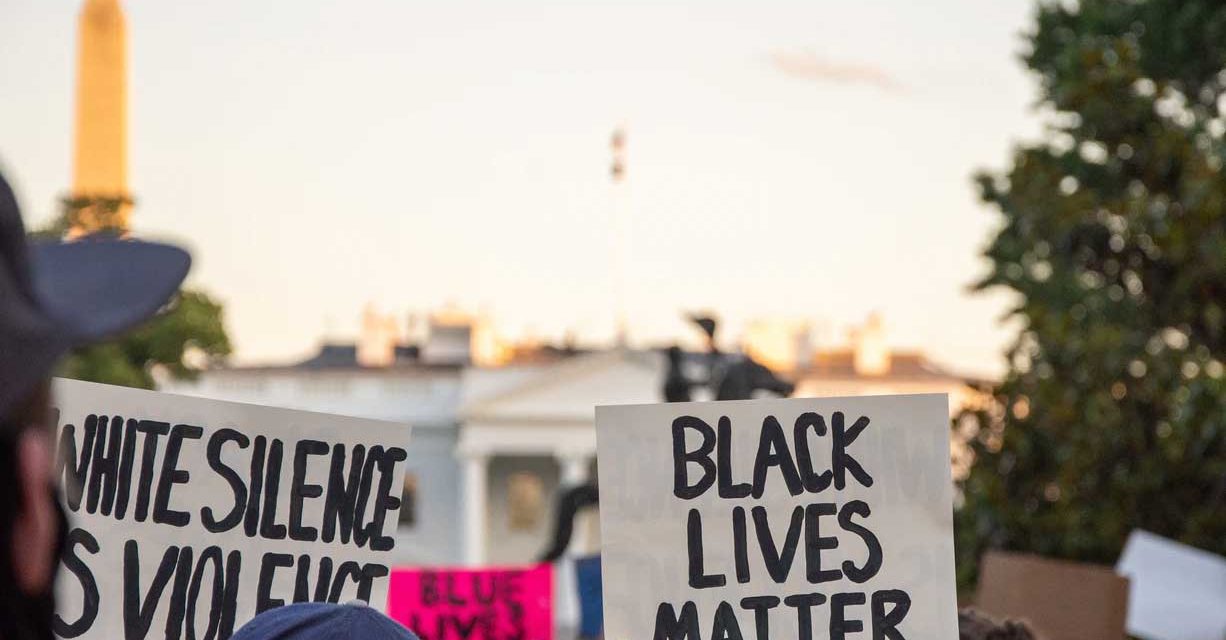On August 19, 2019 I wrote a blog about the ethics of writing the word Racist. The first sentence in that blog was intentionally evocative: “Want to try high-risk writing? As in the high risk of offending, being sued, losing a job or worse yet—being killed? Try writing the word racist.” The ethical points I stressed in that blog did not label private citizens as racists. I didn’t take political positions to advance my personal political ideologies. I stressed the state of political affairs in 2019—MAGA in all caps on a red baseball cap spells racist to some, misplaced hope to others, and glee to white supremacists.
Racism is a noun with an ugly sound. It is not a proper noun since it is not a specific name for a particular person, place, or thing. A racist believes that race is the primary determinant of human traits and capacities. Skin color means everything to racists. White supremacists believe they are superior to black people. Racism is a sick belief. We can write that. Anti-racism is the antidote. We can hope for that. But can we write about racism without a full commitment to action? Is it enough to just talk about racism without insisting on anti-racism? That’s the focus of this blog: the ethics of writing about anti-racism. To create an equal society, we must commit to making unbiased choices and being anti-racist in all aspects of our lives.
What is a white anti-racist? Is it different from black anti-racism? What about mixed-race families? Is one side of the family white and the other black? What about their children? As they grow up, do they see racism differently? Are they seen differently? In a word, can the white side of the family merely be anti-racist while the black side is anti-racist? Deep down inside mixed-race families, does one side feel discriminated against while the other side escapes it? Is black anti-racism different from white anti-racism? Words matter. How writers use words matter—especially from an ethics perspective.
In 2020, three new books eloquently discuss these issues. (1) How to Be Anti-Racist by Ibram X. Kendi.[1] (2) White Fragility by Robin DiAngelo.[2] (3) So You Want to Talk About Race by Ijeoma Oluo.[3] These books cover the history of racism in America, identify white privilege, and examine the intersection between racism and misogyny. Collectively, these books and scores of others like them clarify the first ethical norm when writing about racism: you must know the subject thoroughly lest you mislead and misrepresent. This is a norm in most professional writing but rises to the top of ethical infractions when writing about racism.
The second most important ethical norm when writing about racism is differentiating between racism, the disease, and anti-racism, the antidote. Ethically, you should not limit either the sin or fighting it by writing about one and ignoring the other. A leading review of Ibram X. Kendi’s book makes this ethical imperative clear.
“Anti-racism is a transformative concept that reorients and re-energizes the conversation about racism—and, even more fundamentally, points us toward liberating new ways of thinking about ourselves and each other. At its core, racism is a powerful system that creates false hierarchies of human value; its warped logic extends beyond race, from the way we regard people of different ethnicities or skin colors to the way we treat people of different sexes, gender identities, and body types. Racism intersects with class, culture, and geography and even changes the way we see and value ourselves. In How to Be an Antiracist, Kendi takes readers through a widening circle of anti-racist ideas—from the most basic concepts to visionary possibilities—that will help readers see all forms of racism clearly, understand their poisonous consequences, and work to oppose them in our systems and in ourselves.”[4]
The scourge of racism has been in America for at least four centuries. “In December 1511, Antonio de Montesinos, a Dominican friar, was the first man to rebuke openly the Spanish authorities and administrators of Hispaniola for their ‘cruelty and tyranny’ in dealing with the American natives and those forced to labor as slaves.”[5] Timeliness is also an ethical norm. We should write about these issues now, not months or years from now. Anti-racist is an antidote with a use-by date stamp = Use Now.
 I am an author and a part-time lawyer with a focus on ethics and professional discipline. I teach creative writing and ethics to law students at Arizona State University. Read my bio.
I am an author and a part-time lawyer with a focus on ethics and professional discipline. I teach creative writing and ethics to law students at Arizona State University. Read my bio.
If you have an important story you want told, you can commission me to write it for you. Learn how.
[1] https://www.amazon.com/How-Be-Antiracist-Ibram-Kendi/dp/0525509283/
[2] https://www.amazon.com/White-Fragility-People-About-Racism/dp/0807047414/
[3] https://www.amazon.com/You-Want-Talk-About-Race/dp/1580058825/
[4] https://www.events.sankofa.com/blank-2/how-to-be-an-antiracist-hardcover






 I am an author and a part-time lawyer with a focus on ethics and professional discipline. I teach creative writing and ethics to law students at Arizona State University.
I am an author and a part-time lawyer with a focus on ethics and professional discipline. I teach creative writing and ethics to law students at Arizona State University.  My latest novel is Hide & Be.
My latest novel is Hide & Be.  If you have an important story you want told, you can commission me to write it for you.
If you have an important story you want told, you can commission me to write it for you.